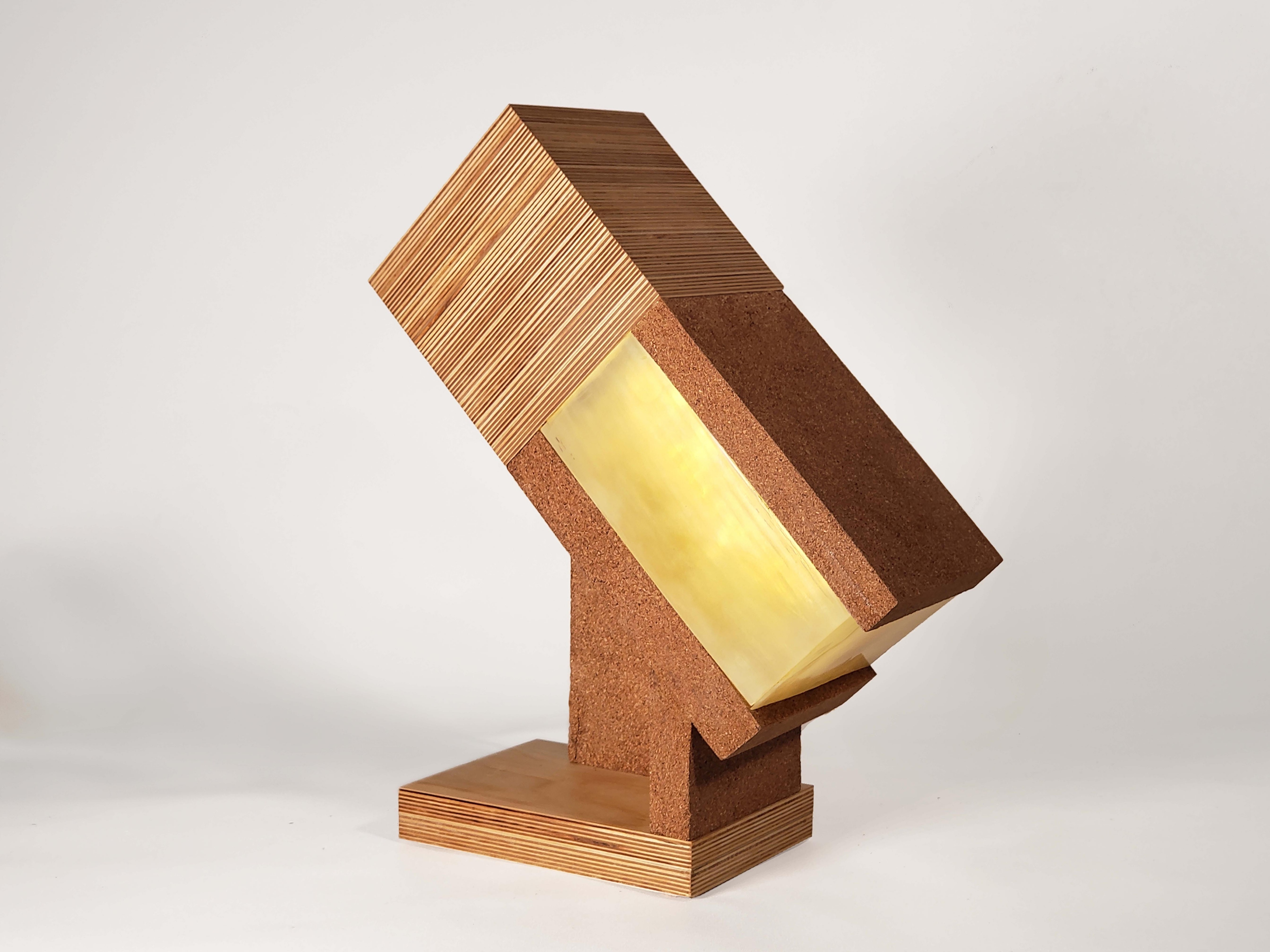Prize(s) Honorable Mentions
University / School Name Purdue University
Lead Designers George Lysy
Professor Names Coco Lemery
Completion Date October 2nd, 2024
Project Location West Lafayette, IN
Entry DescriptionMesa is a handcrafted desk lamp made from natural materials, mostly featuring cork. The design was animated by the desire to create a multiuse desk lamp which enhances its space as well as illuminating it, by offering storage and a centerpiece design.
In geography, a mesa is a steep hill made of stratified rock overlooking a level plain. Just like that landform, this accessory offers a unique and monolithic desk lamp design which is inspired by the natural world. It is a stylistically flexible, multifunctional design with potential to expand into a series of furniture or housewares.
Mesa’s materials explore the interplay between sourcing regenerative natural materials, harmlessly, from both flora and fauna. The bulk of the design is made from cork, a natural regrowth material produced from the bark of trees. It also exhibits an innovative new material for the diffuser; polished animal horn, an ancient material yet to find a place in modern design processes. Once used to create everyday items, now with potential as an organic alternative to plastic with nearly all the same qualities.
Horn’s semi translucent appearance is beautiful and practical. In the 18th century, it was used as a diffuser in oil-burning lanterns. Mesa returns to this antique usage of a forgotten material with its own diffuser.
The result is a stylish and multifunctional desk lamp which casts light uniquely.
Sustainability ApproachMesa is made almost entirely of biological materials; cork, baltic birch plywood, and horn.
Horn is a regenerative, thermoforming material once used to make utensils, combs, buttons, and art, until it was replaced by more recent processes.
Horn is not a very versatile material, and its natural unevenness requires labor to work. But in its narrow scope of usage it offers an indistinguishable alternative to plastic that’s biodegradable and creates no microplastics.
Mesa explores the relationship between hard, regenerative biomaterials from both plants and animals. It encourages us to interrogate our place in this world of living things. Everything generates the lifeblood products which they temporarily need to sustain themselves; and once shed, enter back into the universal toolbox of survival. Mesa represents the strength in sourcing designs from the whole breadth of the natural world.


